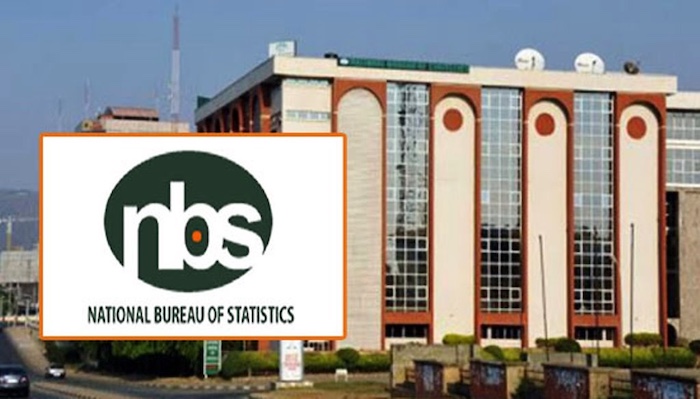According to the National Bureau of Statistics’ most recent data, which was released on Friday, the Consumer Price Index (CPI) increased to 125.9 in July 2025 while the headline inflation rate dropped to 21.88% from 22.22% in June 2025, a decrease of 0.34% from June 2025.
After the recent rebasing exercise was completed, the report is focused on a new CPI base year of 2024 and a weight reference period of 2023, according to a statement issued by Prince Adeyemi Adeniran, the Statistician-General of the Federation.
Additionally, it pointed out that the headline inflation rate for July 2025 dropped to 21.88% from 22.22% in June 2025. In comparison to June 2025, this indicates a decrease of 0.34%.
At the divisional level, the companies that contributed the least to the headline inflation were Recreation, Sport, and Culture (0.07%), Alcoholic Beverages, Tobacco, and Narcotics (0.08%), and Insurance and Financial Services (0.10%). The top three contributors were Food and Non-alcoholic Beverages (8.75%), Restaurants & Accommodation Services (2.83%), and Transportation (2.33%).
The headline inflation rate in July 2025 was 1.99% on a month-over-month basis, 0.31% higher than the rate in June 2025 (1.68%).
In July 2025, the annual rate of food inflation was 22.74%. The July 2025 food inflation rate was 3.12% month over month, 0.14% lower than the June 2025 rate of 3.25 percent.
The decline is explained by the rate at which the average prices of goods like vegetable oil, white beans, rice, maize flour, guinea corn (sorghum), wheat flour, millet whole grain, etc. are declining.
In July 2025, core inflation—which does not include the prices of energy and volatile agricultural products—was 21.33% year over year. The core inflation rate decreased 1.49 percentage points from 2.46 in June 2025 to 0.97% in July 2025 on a month-over-month basis.
According to the July 2025 inflation rate, the sub-indices for farm produce (3.96%), energy (2.71%), and goods (2.72%) all saw notable increases, with corresponding indices of 128.5, 121.2, and 124.6 basis points. On the other hand, services saw a decrease of 0.47% during the course of the month.
In July 2025, the urban inflation rate was 22.01% on an annual basis. The urban inflation rate in July 2025 was 1.86% on a month-over-month basis, which was 0.25% lower than the rate in June 2025 (2.11%).
In July 2025, the rural inflation rate was 21.08% compared to the previous year. The rural inflation rate in July 2025 was 2.30% on a month-over-month basis, which was 1.67% higher than the rate in June 2025 (0.63%).
Yobe (11.43%), Zamfara (12.75%), and Katsina (15.64%) saw the lowest increases in headline inflation on a year-over-year basis, while Borno (34.52%), Niger (27.18%), and Benue (25.73%) had the highest all-item index inflation rate for July 2025.
However, July 2025 saw the most rises in month-over-month inflation in Borno (6.11%), Zamfara (5.72%), and Kano (4.31%), while the lowest increases were seen in Bauchi (0.26%), Katsina (0.30%), and Anambra (0.37%).
According to state-level analysis of the food index in July 2025, Borno had the greatest food inflation rate year over year (55.56%), followed by Osun (29.10%) and Ebonyi (29.06%). Katsina (6.61%), Adamawa (9.90%), and Zamfara (14.72%) had the slowest food inflation rate increases.
However, July 2025 saw the highest food inflation rates month over month in Borno (10.89%), Kano (10.86%), and Sokoto (7.43%), while Zamfara (-6.00%), Bauchi (-2.18%), and Abia (-1.06%) saw the lowest food inflation rates month over month.

